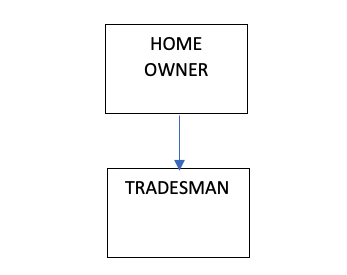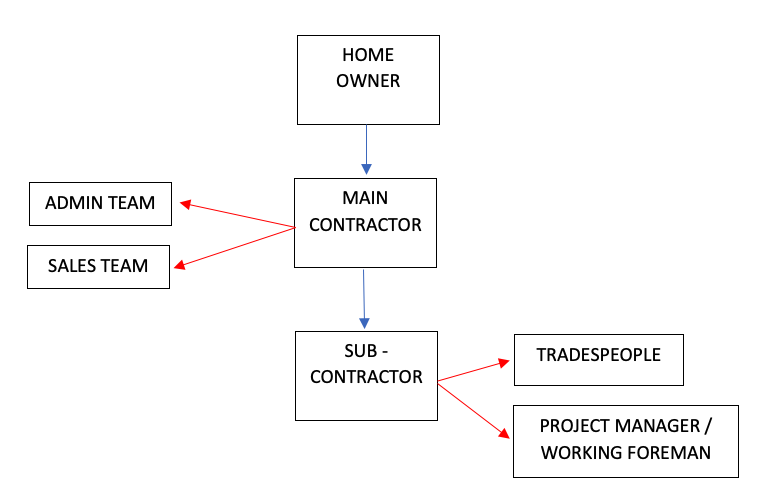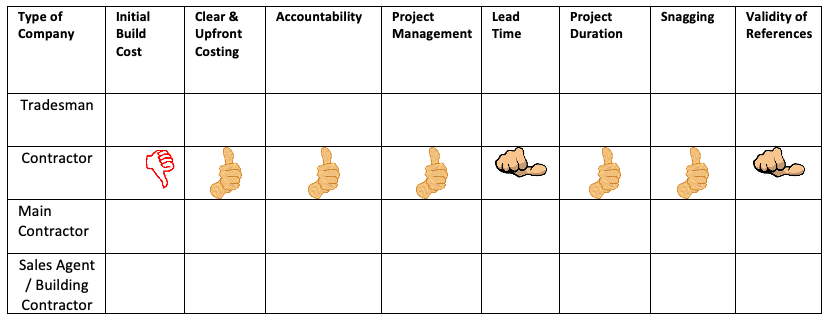You may have already made the decision to convert your loft, or you may simply be toying with the idea of utilising unused space and doing a loft conversion is just one of your options; whichever sounds like you, one of the most important things is choosing the right company to do the job.
It doesn’t matter if you’re a seasoned pro at home improvements or if this is the first time dipping your toe in: get the fundamentals wrong and your dream loft conversion may not only fail to materialise, but it could end up costing you in terms of time, cash and lots of headaches. In order to make sure you pick the right type of company for you, you will need to consider the following:
What is important to you?
- Do you want to benefit from experienced project management professionals who will take on the entire process?
- Would you prefer to be more intimately involved and supervise all the work?
- Or would you be happiest somewhere in between?
Perhaps you’re not entirely sure about which way would best suit you – and we’re here to help. In this article, we give an overview of the 4 most common types of loft conversion companies or building service providers. By comparing the different service levels and potential costs involved, we hope to make your decision a little less confusing. We also give a few handy tips at the end, just in case you need a bit more help.
The 4 types of companies:
There are 4 key types of companies that offer loft conversion services. Although most may seem very similar, the actual level of service and cost involved may, in fact, be significantly different – and this is where is can often get confusing.
Essentially, you will be looking at using one of the following types:
Tradesman
Contractor
Main Contractor/ Sub-contractor(s)
Sales Agent/ Building Contractor
In this guide, we look at each type in more detail. By the end, you should easily be able to identify which category any potential ‘company’ or service provider falls into, as well as understanding the benefits and possible pitfalls each poses.
PROFILE 1 – THE TRADESMAN

A tradesman is a self-employed individual who usually has a key skill in one particular area (although some do multi-task). They may be registered as a ‘sole-trader’ or a ‘Ltd’ company – the difference may have legal implications in case you get into difficulties.
Employing a tradesperson in this context can have its positives and negatives:
|
Pros |
Cons |
|
+ You only have to deal with a single individual who will be highly skilled and experienced in their particular area. |
– Your loft conversion may require multiple skill-sets, depending on whether you’ve opted to add a wet-room, toilet, specialist flooring, or if you need to make structural changes (i.e. lowering the ceiling to meet building regulations) – and this could be mean your tradesperson having to outsource some of the work to unknown individuals.
|
|
+ You may have more flexibility in terms of payment schedule.
|
– A verbal agreement doesn’t offer much protection in case things go wrong. |
|
+ You may find their costs are lower than other types, especially if you go for a fixed price deal.
|
– If your tradesperson becomes ill or incapacitated, all work will likely stop. |
|
+ You can be as involved as you want to be. |
– Any damage caused by a tradesperson may not be covered unless they have liability insurance.
|
|
|
– The work could take longer to complete.
|
|
|
– You may get stung with hidden/ additional costs unless you have a fixed price deal. |
It may seem like using a tradesperson is a bad idea, but it can work out cheaper if you’re happy to wait a bit longer for the work to be completed – and you will likely end up with a much more bespoke finish. It is always advisable to check that your tradesperson has some form of insurance in case things go wrong!
PROFILE 2 – THE CONTRACTOR

A contractor, in this sense, will usually be a registered Ltd company who will often specialise in loft conversions or residential building services in general.
Using a contractor for your loft conversion can have the following advantages and disadvantages:
|
Pros |
Cons |
|
+ You will usually be appointed a project lead or manager who is your go-to in case of any queries, issues or changes
|
– You may have a large group of people working in your home at any one time |
|
+ You will benefit from a dedicated team of specialists that will cover all aspects of the work to be done
|
– It may be more expensive to create a bespoke look |
|
+ You will benefit from creative and/or design input, which is extremely useful if you’re not really sure what you want
|
– You may have to book in the job weeks or months in advance |
|
+ Work is more likely to be completed on time and within budget |
– It may be more difficult and/or incur costs if you want to make any changes once work has started |
|
+ You will have a written, legal agreement – for peace of mind
|
|
|
+ ‘Off-the-peg’ conversions may be more cost effective
|
|
|
+/- You will have minimal involvement or supervisory responsibility, although any major changes of issues should be raised with you (this is either a positive or negative, depending on if you want to be highly involved) |
|
This type of company can be considered the ‘classic’ approach, and has far more upsides than downsides.
PROFILE 3 – THE MAIN CONTRACTOR / SUB CONTRACTOR

Similar to the above profile (Contractor), a Main Contractor will be fully responsible for the entire delivery of the project, and is also normally a Ltd company.
The key difference is that a main contractor will usually outsource the entire site management and delivery of the project to a separate sub-contractor, who employs the tradespeople carrying out the physical building works.
This type of company has the following benefits and disadvantages:
|
Pros |
Cons |
|
+ You will have an assigned project manager/ working foreman as a go-to in the event of any issues or queries |
– You will have to negotiate extra layers of bureaucracy, which can be time-consuming and difficult if there is no consensus or poor communication between the main contractor and its sub-contractor(s)
|
|
+ You will benefit from a dedicated team of specialists that will cover all aspects of the work to be done |
– It may be potentially more expensive due to the additional overhead costs of working with multiple companies
|
|
+ You may benefit from creative and/or design input, although this may vary from company to company
|
– Delays may occur if there are scheduling conflicts with the sub-contractor(s)
|
|
+ You will have a written, legal agreement – for peace of mind
|
– It will be much harder to verify the quality of previous sub-contractor(s) work if the main contractor uses multiple sub-contractors
|
|
+ Work is more likely to be completed on time and within budget |
– You are more likely to be offered an ‘off-the-peg’ loft conversion
|
|
|
– It may be more difficult and/or incur costs if you want to make any changes once work has started
|
|
|
– You may have to book in the job weeks or months in advance
|
|
+/- You will have minimal involvement or supervisory responsibility, although any major changes of issues should be raised with you (this is either a positive or negative, depending on if you want to be highly involved) |
|
While this option is similar to using a contractor, the biggest negative by far is that you will have to deal with multiple individual companies – all of whom will have their own schedules, methods of working and varying quality in terms of tradespeople employed. That’s not to say it isn’t a viable option, or that it won’t work for you; for many people this type of company works well – provided everything runs smoothly.
PROFILE 4 – THE SALES AGENT / BUILDING CONTRACTOR

Perhaps the most convoluted option available; often homeowners find themselves employing this type of company without even realising it!
While you may think that you have entered into a contract with the sales agent (the company you spoke to), in fact, the contract will be with an entirely separate (and often unknown) third party contractor. The exact set-up of this type can vary from company to company, and this makes it more difficult to pin down in terms of negatives and positives.
|
Pros |
Cons |
|
+ You may be assigned a project manager or work foreman, although this isn’t guaranteed
|
– It may be unclear who you need to contact if any issues or problems arise
|
|
+ You should benefit from a dedicated team of specialists that will cover all aspects of the work to be done |
– It may be potentially more expensive due to the additional overhead costs of working with multiple companies
|
|
+ You may benefit from creative and/or design input, although this may vary from company to company
|
– Delays may occur if there are scheduling conflicts or poor communication between parties
|
|
+ You will have a written, legal agreement – for peace of mind
|
– It will be much harder to verify the quality of previous work, especially if you aren’t told who will be carrying out the physical works
|
|
+ Work is more likely to be completed on time and within budget |
– You are more likely to be offered an ‘off-the-peg’ loft conversion
|
|
|
– It may be more difficult and/or incur costs if you want to make any changes once work has started
|
|
|
– You may have to book in the job weeks or months in advance
|
|
+/- You will have minimal involvement or supervisory responsibility, although any major changes of issues should be raised with you (this is either a positive or negative, depending on if you want to be highly involved) |
|
Essentially, this type of company is split in two. On the one side, you have the sales and marketing end who have very little to do with the actual physical build; and on the other, you have a (potentially) unknown building contractor who may or may not hire sub-contractors to carry out the work. Of all the types of companies to use, this one poses the biggest stress in the event that things go wrong.
So, which is better?
This is a harder question to answer than it may seem – even after setting out the positives and negatives above. You are an individual who may prefer to be more hands on, or completely hands off. You may not be concerned with cost at all, but be more focused on the quality or reputation of the company you use. You may even be looking at which company can do your loft conversion in the quickest time.
Because of this, we’ve set out our 8 criteria that every homeowner needs to consider before selecting a company for your loft conversion.
1. INITIAL BUILD COST
This cost usually only includes the essential building works (so, excludes any tiling, decorating, etc.) and is normally provided as a quote.
It is worth remembering that a quote is not necessarily the amount you end up paying.
2. CLEAR, UPFRONT COSTING
Some types of company are more likely to be able to offer you open and upfront costing estimates for the entire project (profiles 1, 2 and 3) simply because of they way they are set up.
If you want to be clear about what kind of costs you are likely to incur, and for that to be continually updated and communicated effectively to you, then your best bet is to go for a company type that cuts out any middle men. It is important to keep in mind that unforeseen complications or design changes will have an impact on cost. The sign of a good company is one that will be upfront with you about this.
3. ACCOUNTABILITY
Knowing who is accountable should things go wrong is an essential element of working with a loft conversion – or any building company. This is your home, so it’s imperative that you trust the people who are carrying out the work. While reputation can count for a lot, if you’re unwittingly working with a profile 4 company, that reputation may mean nothing as the tradespeople doing the actual job may work for a completely separate company.
A good company will ensure that you have a ‘first point of contact’: an individual that you can get in touch with whenever you need to.
4. PROJECT MANAGEMENT
Project management becomes an issue if you don’t want to have the hassle of supervising and organising all the work yourself. It can free up a lot of your valuable time, as well as put the work in the hands of skilled, professional specialist who knows exactly what they’re doing, which can also reduce costs. A good project manager will organise tradespeople, ensure adequate and correct materials are delivered, and keep a sharp eye on expenditure and timescales. They help reduce wastage, can be creative problem-solvers, and are fundamentally an invaluable member the team.
If you decide to invest in a project manager (or a company type who will take on this role for you), it is worth considering the added value they offer and offset this against any increase in upfront cost.
5. LEAD TIME
“When can you start?” is one of the most frequently asked questions asked of loft conversion contractors. Known as ‘lead time’, this is the difference between agreeing to doing a job and actually starting it. Depending on their set up, some company types will build one project at a time, while others take on a set number of projects at any one time, while yet others outsource every project to external companies thereby creating potentially unlimited capacity.
When working out whether or not it is worth waiting for a company to get started on your loft conversion, it is important to consider if you want a generic, ‘off-the-peg’ solution, or if you want something more bespoke that works perfectly for you and your loft space. Sometimes, the wait is worth the end result.
6. PROJECT DURATION
There are many factors that play a part in how long it will take for your loft conversion project to be completed. From the level of project management, the number of tradesmen and their level of specialism and experience, as well as inherent differences in terms of design, layout and additional fixtures and fittings (such as the installation of a new wet-room); most companies will offer an estimated project duration. The accuracy of this estimate can vary dramatically depending on the company type you use, with those who work closely with you (i.e. profiles 1 and 2) more likely to get this right.
7. SNAGGING
Snagging, also known as the ‘final fix’, is a common (even if unwanted) aspect of any construction work. Just because your loft conversion project has a few minor snags, doesn’t mean that the quality of work isn’t up to scratch. Major snags, on the other hand, are a bit more of a concern.
Knowing that the company you’ve hired to convert your loft will rectify any snags that you flag up before they demand final payment is important, but only some company types will offer this service. As a rule of thumb, expect getting remedial or snagging work rectified quickly to be more difficult the more parties that are involved in this build work – unfortunately, the more people available to blame, the less likely anyone will take responsibility for fixing it.
8. VALIDITY OF REFERENCES
Having the peace of mind that the company you have employed to carry out your loft conversion are not only up to the job, but deliver in terms of quality, cost and provide a great customer experience, is essential to most homeowners. Knowing that the testimonials or references you are given are real can be tricky, especially with some company types.
After all that information, you would be forgiven for feeling a little swamped. So, we’ve put together the rather handy table below that details how each company type looks against each of the 8 criteria.
It is important to note that each individual company will have its own specific set up and homeowners should look into their chosen loft contractor independently.

How to categorise your chosen company:
By asking the following 3 questions, you should be able to figure out which company type a prospective loft conversion contractor falls into:
- Am I in direct contract with your limited company for the actual construction of the loft?
- Are the tradesmen that are physically carrying out the works in the loft employed by your limited company or is there another company involved?
- Is your company contractually liable for rectifying any snagging and/or defects that become apparent both during the project and after it is completed?
For added security, it may be worth asking for the above to be provided in writing.
Our top tips!
Visit a current job: wherever possible (and time permitting), it’s a great idea to check out a ‘live’ site that your chosen company is working on. Not only does it give you an invaluable insight into how the job is being managed, but you can even discuss the company directly with a real customer.
Beware fake reviews: the internet can be a wonderful source of information – and reviews. However, beware fake reviews; or at best, the omission of bad reviews. Don’t just rely on the company’s own website for testimonials and reviews. Go to an independent review site, do a google search for reviews and look on relevant forums. If a company is as good as they say they are, you will only find reassurance.
Trust your instincts: construction projects are never completely smooth sailing, and this can be particularly stressful when it involves building works in your home! It is important that you feel comfortable and able to approach your chosen company if any issues or concerns come up. If your gut instinct is that you might clash with an individual; then that could be a warning sign that there could be conflict if any problems arise. Similarly, your instincts should flag up if the promises being made sound too good to be true, or reviews sound too far-fetched or over-the-top. No company or individual is perfect. What is most important is how they deal with complications and issues.
Value your own time: many homeowners converting their lofts fall into the trap of not placing adequate value on the time they spend on managing their project. Different contracting options will naturally require varying investments of time from the homeowner, and it’s worth considering whether your time is better spent doing other things and leaving the details to a dedicated professional.
Hopefully, you’ve found this article useful – or at the very least, thought-provoking. We are passionate about what we do, and believe every homeowner deserves the loft conversion they dream of! If you have any questions or would like to arrange a free consultation for your project: get in touch with JP on the details below.

